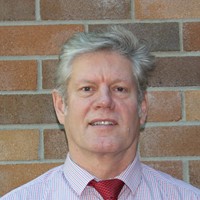The Australian Curriculum Assessment and Reporting Authority (ACARA) has updated the My School website with data from the 2018 tests – which highlighted all the schools that have shown such improvement.
Danielle Reed, Principal of St Columban’s Primary School, was elated with the results, stating they are a reflection of the staff and student’s commitment to learning and continuous improvement.
“Staff at St Columban’s undertake an analysis of NAPLAN data annually and use this, along with other assessments during the year, to inform teaching and learning in our school. Our professional learning teams meet regularly to plan and discuss learning and set goals for our students,” Ms Reed said.
“NAPLAN data is very useful for identifying trends over time – areas in which our school has strengths and weaknesses. We use these trends to set goals for our school.
“In recent years, we have identified areas for growth in literacy and targeted these specifically in our School Improvement Plan. We then plan staff professional development and interventions to increase student gains in these areas.
“The use of a structured literacy block each day, using explicit instruction and teacher modelling has resulted in an increased percentage of students scoring in the upper bands for NAPLAN. In year 3, for example, the percentage of students in the top two bands for reading has increased by 20% in the past two years.
“We have found the use of critical and creative thinking skills and learning objectives has also resulted in higher engagement among the students and results in improved outcomes.
“Our school views NAPLAN preparation as only one part of a learning continuum that begins in Kindergarten and continues throughout their school years,” Ms Reed said.
Tim Cleary, the Principal of All Saints' College in Maitland, said the improved results are a reflection of the school’s renewed approach to creating a culture of learning.
“Receiving such significant growth in Numeracy in NAPLAN is a solid testament to the work of the Mathematics Professional Learning Team and their explicit and targeted approach towards ensuring that all students have the opportunity to achieve,” Mr Cleary said.
“The members of this highly-dedicated, expert teaching team, currently led by Mrs Alana Daley and previously Mrs Melissa Hurn, have all worked and continue to work collaboratively, to ask questions of data with a view to achieving growth by identifying student learning needs and, in turn, teachers’ professional learning needs,” Mr Cleary said.
Specific strategies that have been used at All Saints' College that can be attributed to this growth have been:
- Stage 3 - transition program where strengths and weaknesses in numeracy were identified and developed with Stage 3 and 4 teachers working collaboratively
- Stage 4 - lesson starters as quick questions to help build skills in answering NAPLAN style questions. Questions created through analysis of areas of student need using the data
- Stage 5 - Daily Four! Where students started each lesson with four focus area questions and then teacher explained/provided solutions and immediate feedback. Each week had a new focus area based on NAPLAN data for the cohort
- Stage 4 and 5 - Identifying ‘essential learning’ for all students
- NAPLAN-style questions mapped to outcomes and embedded in units of work.
“While NAPLAN is a snapshot of student’s progress, the style of questions often prevents some students from accessing the content,” Mr Cleary said.
“With regular exposure to this style of question, we have assisted students in their ability to unlock the ‘numeracy’.
“This has been ongoing and has now become deeply embedded in the teaching style at All Saints’ College, Mr Cleary said.

